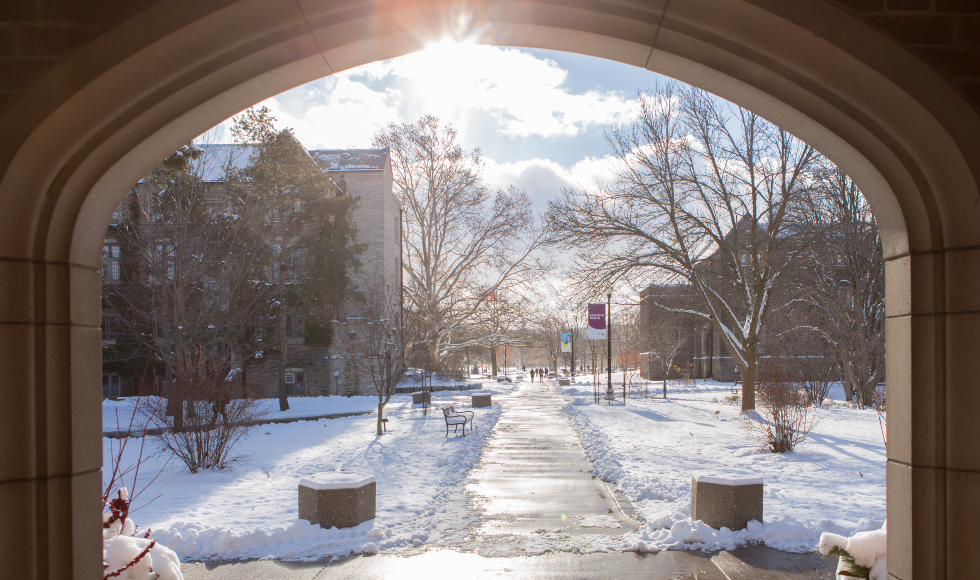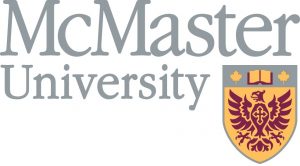Thank you to those who contributed to Shape the Future: President’s letter


Dear Members of the McMaster community,
It’s hard to believe that we’re already in the final month of 2020. While many of us will not be sorry to see this year come to a close, we should not lose sight of all that we have achieved as a community of scholars, teachers and learners, nor of all the tremendous work undertaken by our committed faculty and staff to keep the University operating and our community safe.
I recognize all the ongoing work and challenges we are facing and am deeply appreciative of the time and thought so many members of our community committed to responding to the recent Shape the Future visioning exercise. As you know, I have been engaged in a series of conversations with members of the McMaster community and beyond over the last few months, with the intention of creating a bold, long-term vision for the University, to be followed by a new strategic plan.
In addition to the many group and individual conversations that have taken place with members of the academic, administrative and student leadership, alumni, community members and external partners, I also invited the entire University community to provide feedback around the following five questions critical to the future of McMaster:
Where should McMaster be in 30 years?
What do our students need to thrive in a rapidly changing world?
Which of the urgent problems facing our world today should the University focus on?
What is the most impactful thing McMaster could do to help create a brighter future for our city and region?
If there was one thing about our University or our campus that you could change, what would it be?
More than 900 responses were received, and I have now had the opportunity to review them all. Thank you to those of you who took the time to share your views, ideas and perspectives, to identify the areas you see as critically important to the future of McMaster and to our local and global community, to share your ambitions and hopes for our institution, and to let me know where you have concerns.
I heard a lot about your fears for the future of our planet and a strong desire for McMaster to be a driving force in addressing climate change and enabling a more sustainable, less carbon-dependent future. This extended from waste reduction on our campus to engaging our community in promoting sustainable practices, reviewing the University’s investment portfolios and strategies, including calls for divestment, as well as undertaking research to address food and water insecurity and enhance our understanding of the impacts of climate change.
The critically important issues of equity, social justice, inclusion and accessibility were also raised by many respondents and ranged from the need to address systemic racism, health disparities and poverty, both locally and globally, to working in partnership with our local Indigenous communities, operating as a trusted and respectful partner to the communities we serve, and improving the physical accessibility of our campus.
The University’s role in promoting health and physical and mental wellness, including supporting those with chronic disease and our aging populations, was a key consideration for many people, as was the importance of expanding access to education across our city and region.
Many respondents were optimistic about the impact that McMaster could have on the local community, ranging from opportunities to attract employers to Hamilton and the locations of our regional campuses in Burlington, Kitchener-Waterloo and Niagara, to expanding entrepreneurial opportunities for faculty and students, developing increased technology and business-focused partnerships, and building inter-disciplinary collaborations within and beyond our campus.
Many participants focused on the role McMaster could play in solving the big issues facing our world and making use of the transformative power of knowledge to create a fairer, more equitable future for everyone. The importance of the United Nations Sustainable Development Goals was highlighted and the opportunities for McMaster to effect positive change in a number of these key areas emerged as a clear theme.
Not surprisingly, the impacts of the current pandemic on the teaching and learning environment, as well as on the physical and mental health of members of our community, were prevalent in many responses.
Key themes included the importance of supporting our students to be flexible, adaptable and resilient, equipped with the skills needed to analyze and solve complex problems, think critically and across disciplinary boundaries, and enter the job market able to lead with empathy and compassion.
Other respondents focused on the opportunities presented by the changed learning environment, the importance of making the best possible use of advances in technology, retaining flexibility and ensuring that all necessary infrastructure and processes are in place to support our digital platforms.
I also received a range of comments and ideas about our campus environment, including suggestions for improving indoor and outdoor physical spaces to support well-being and accessibility. I heard concerns about safety and security on our campus, alongside a clear call to examine the services and supports currently in place. Respondents also commented on the need to ensure that appropriate resources are available to our students as they navigate the University’s systems and processes in the virtual environment.
These issues will be considered further as part of the student climate survey and holistic review to be launched in the New Year, which will provide an opportunity to comment on specific experiences with a host of different programs and services.
Overall, I received a clear picture of the commitment of members of our University to making a positive impact on the world, building a clear sense of community and belonging for everyone, and developing the partnerships and collaborations needed to support our scholars and ensure that we are well positioned to tackle the major local and global issues we face.
When we launched this process, I commented that I was optimistic about the future of our University; I am even more optimistic after having heard from so many of you and witnessed the alignment that exists around these important areas, as well as our ongoing focus on advancing human and societal health and well-being.
Based on all the feedback received I am working to finalize a refreshed vision statement capturing these key themes and look forward to sharing this with the McMaster community early in 2021.
Sincerely,

David Farrar

